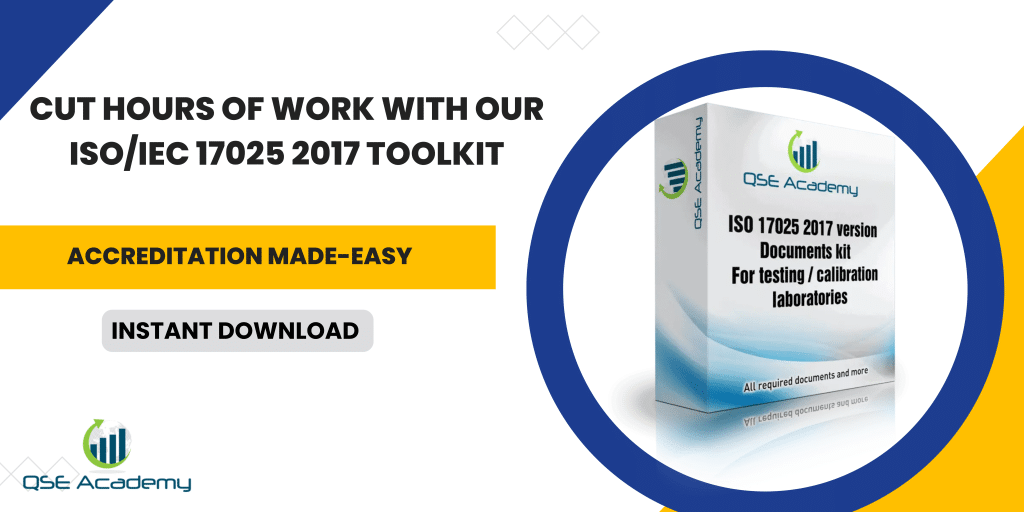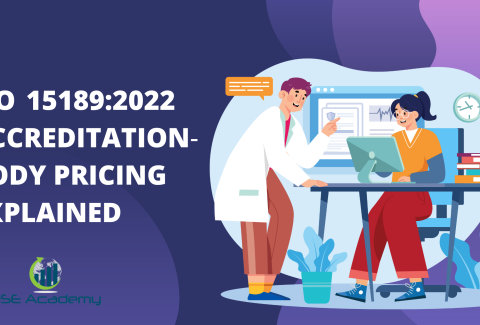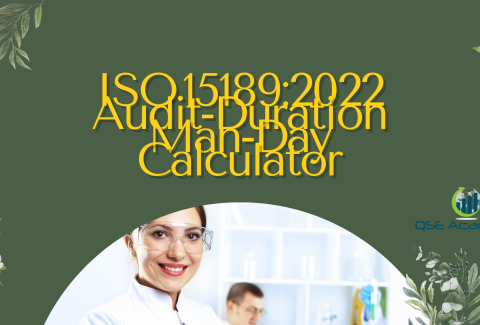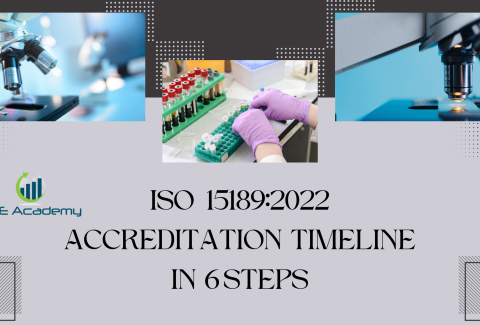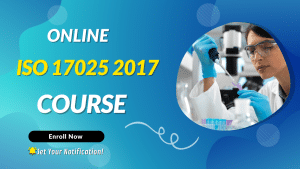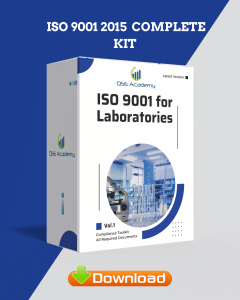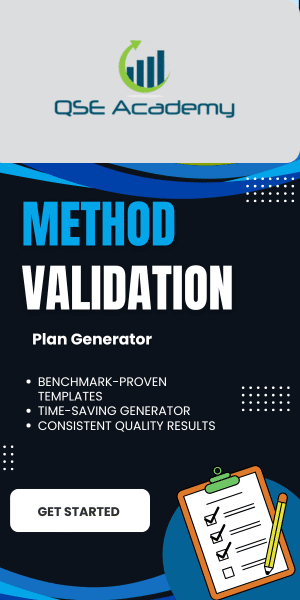Important Requirements of the New ISO/IEC 17025:2017 – Part 3
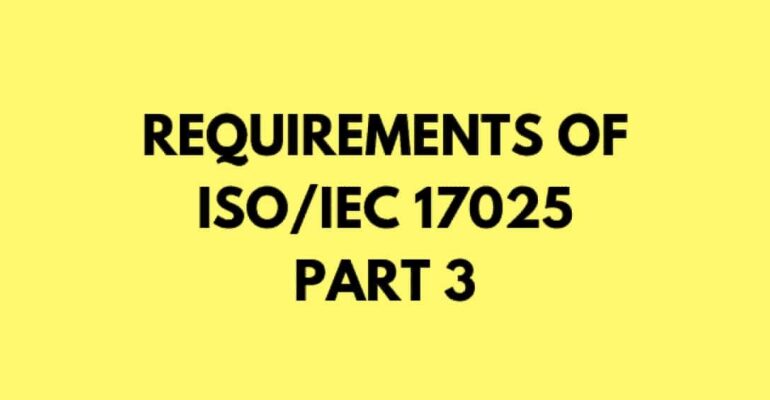
Important Requirements of the New ISO/IEC 17025:2017 – Part 3
Last Updated on October 13, 2025 by Hafsa J.
ISO/IEC 17025:2017 Important Requirements – Part 3
If you’ve already gone through Part 1 and Part 2, you know that ISO/IEC 17025:2017 introduced several key updates that reshaped how laboratories manage their quality and technical operations. In this third installment, we’ll take a closer look at more ISO/IEC 17025:2017 Important Requirements that are often overlooked—but absolutely essential if you want to stay compliant and audit-ready.
From equipment control to measurement uncertainty and risk-based thinking, these elements may not be the flashiest parts of the standard, but they’re critical to getting things right. In fact, understanding these ISO/IEC 17025:2017 Important Requirements can help your lab avoid common mistakes and build a stronger, more reliable management system.
Let’s walk through each of these clauses together—one step at a time.
Clause 6.4 – Equipment Requirements
Let’s start with something every lab relies on daily: equipment. Clause 6.4 is one of those ISO/IEC 17025:2017 Important Requirements that sounds simple at first—but once you dig in, there’s more to it than just keeping your instruments in good shape.
Under this clause, your lab must ensure that all equipment used for testing, calibration, or sampling is suitable for its intended use. Sounds obvious, right? But what makes it one of the ISO/IEC 17025:2017 Important Requirements is how detailed ISO gets about managing that equipment properly.
Here’s what your lab is expected to cover:
-
Keep a full inventory of relevant equipment
-
Calibrate or verify equipment regularly (based on its use and required accuracy)
-
Label each item clearly, so its calibration status is never in doubt
-
Protect equipment from damage, misuse, or unintentional adjustments
-
Maintain detailed records for calibration, maintenance, and repairs
These are not just best practices—they’re mandatory under the ISO/IEC 17025:2017 Important Requirements. During an audit, if you can’t show complete records or if your calibration dates are out of sync, it could result in nonconformities.
Another key point? Metrological traceability. ISO expects your equipment to be linked to national or international standards through a clear, documented chain. And yes, that means more than just saying “it’s calibrated”—you’ll need supporting evidence to prove it.
So, while it’s easy to assume equipment management is straightforward, Clause 6.4 reminds us that even the basics need structure and consistency. When applied well, it not only keeps your lab compliant but also ensures that every result you produce is built on a solid, reliable foundation.
Ready to move on? Next, we’ll dive deeper into the related concept of metrological traceability—a term that sounds technical, but we’ll break it down together.
Clause 6.5 – Metrological Traceability
Now let’s talk about a phrase that tends to raise eyebrows: metrological traceability. It sounds like a mouthful, but once we break it down, you’ll see why it’s one of the ISO/IEC 17025:2017 Important Requirements that’s absolutely essential for any lab that wants to produce reliable, defensible results.
So, what does it actually mean? In plain language, metrological traceability is your lab’s ability to link a measurement result to a recognized standard—usually through an unbroken chain of calibrations, each one documented and clearly traceable.
Let’s say you’re using a balance to weigh samples. That balance needs to be calibrated against a reference weight, which itself has been calibrated by another lab, and so on—until you reach a national or international standard. That’s metrological traceability in action.
ISO/IEC 17025:2017 makes this a formal requirement for any equipment that affects your measurement results. That’s why Clause 6.5 is included as one of the ISO/IEC 17025:2017 Important Requirements.
To meet this requirement, your lab should:
-
Use calibration services that are accredited or recognized by national metrology institutes
-
Keep certificates that clearly state the measurement uncertainty and reference standards
-
Ensure your internal procedures follow a documented traceability chain
-
Avoid using unverified reference materials or instruments when traceability is needed
And here’s a simple but common mistake to avoid: assuming a calibration sticker is enough. Auditors will want to see proof of the traceability chain—meaning certificates, links to recognized standards, and clear documentation of uncertainty.
This requirement isn’t just about ticking boxes. It’s about protecting the integrity of your lab’s results. Whether you’re testing materials, calibrating instruments, or analyzing samples, the ISO/IEC 17025:2017 Important Requirements around metrological traceability help ensure your numbers can be trusted.
Let’s keep going. Next up, we’ll talk about Clause 7.3—Sampling Procedures—and how they factor into your lab’s compliance and technical accuracy.
Clause 6.5 – Metrological Traceability
Now let’s talk about a phrase that tends to raise eyebrows: metrological traceability. It sounds like a mouthful, but once we break it down, you’ll see why it’s one of the ISO/IEC 17025:2017 Important Requirements that’s absolutely essential for any lab that wants to produce reliable, defensible results.
So, what does it actually mean? In plain language, metrological traceability is your lab’s ability to link a measurement result to a recognized standard—usually through an unbroken chain of calibrations, each one documented and clearly traceable.
Let’s say you’re using a balance to weigh samples. That balance needs to be calibrated against a reference weight, which itself has been calibrated by another lab, and so on—until you reach a national or international standard. That’s metrological traceability in action.
ISO/IEC 17025:2017 makes this a formal requirement for any equipment that affects your measurement results. That’s why Clause 6.5 is included as one of the ISO/IEC 17025:2017 Important Requirements.
To meet this requirement, your lab should:
-
Use calibration services that are accredited or recognized by national metrology institutes
-
Keep certificates that clearly state the measurement uncertainty and reference standards
-
Ensure your internal procedures follow a documented traceability chain
-
Avoid using unverified reference materials or instruments when traceability is needed
And here’s a simple but common mistake to avoid: assuming a calibration sticker is enough. Auditors will want to see proof of the traceability chain—meaning certificates, links to recognized standards, and clear documentation of uncertainty.
This requirement isn’t just about ticking boxes. It’s about protecting the integrity of your lab’s results. Whether you’re testing materials, calibrating instruments, or analyzing samples, the ISO/IEC 17025:2017 Important Requirements around metrological traceability help ensure your numbers can be trusted.
Let’s keep going. Next up, we’ll talk about Clause 7.3—Sampling Procedures—and how they factor into your lab’s compliance and technical accuracy.
Clause 7.6 – Evaluation of Measurement Uncertainty
Ah, measurement uncertainty—the phrase that can make even seasoned lab staff sigh a little. But here’s the thing: it doesn’t have to be scary. Clause 7.6 is one of the ISO/IEC 17025:2017 Important Requirements because it helps labs understand and communicate just how confident they are in the numbers they report.
So, what is measurement uncertainty? It’s simply a way of expressing how much doubt or variability might exist in your measurement result. Every test or calibration has some level of uncertainty—no method is 100% perfect. The key is knowing how much uncertainty exists and whether it’s acceptable for your intended use.
ISO/IEC 17025:2017 makes it clear that evaluating uncertainty is not optional. If your lab is performing calibrations, or testing that involves quantitative results, then this clause definitely applies. That’s why it’s highlighted among the ISO/IEC 17025:2017 Important Requirements.
Here’s how to keep things clear and manageable:
-
Identify all sources of uncertainty that could affect your result—equipment, environment, method, sample handling, etc.
-
Use real data (not guesses) to estimate how much each factor contributes
-
Combine these into an overall uncertainty value using basic statistics (don’t worry, it doesn’t have to be fancy)
-
Express the uncertainty along with your result when required, especially in calibration certificates
Now, if you’re running purely qualitative tests—like color comparisons or visual inspections—this clause may not apply in full. But for most quantitative work, understanding uncertainty helps your lab make better decisions and gives your clients greater confidence in the results.
Also, auditors love to ask about this one. If your lab can clearly explain its approach to uncertainty, using terms your team actually understands, you’re in a great spot. That’s why Clause 7.6 is consistently flagged as one of the ISO/IEC 17025:2017 Important Requirements—because it speaks directly to the reliability of your work.
Keep it simple, keep it real, and always keep it documented.
Up next, we’ll move into Clause 8.6 and talk about something that’s all about mindset—risk and opportunity thinking—and how it’s become part of the ISO approach to continual improvement.
Clause 8.6 – Actions to Address Risks and Opportunities
Let’s talk about one of the most forward-thinking parts of the 2017 update—Clause 8.6. It’s all about how your lab handles risks and opportunities, and yes, it’s one of the ISO/IEC 17025:2017 Important Requirements that often sparks the question: “Do we need a risk register now?”
Good news—no, you don’t need to create complicated risk matrices or color-coded charts (unless you want to). What ISO is really looking for here is evidence that your lab is thinking proactively. Instead of waiting for problems to happen, Clause 8.6 encourages labs to ask: What could go wrong? And how can we stay one step ahead?
Here’s why this clause is such a big deal in the list of ISO/IEC 17025:2017 Important Requirements:
-
It shifts the focus from just reacting to issues (corrective actions) to preventing them
-
It supports smarter planning, more efficient operations, and better decision-making
-
It shows auditors that your lab is not just following procedures, but actively improving
So, what does ISO expect you to do?
-
Identify risks and opportunities related to your lab’s activities, services, or results
-
Decide what actions you’ll take to manage or leverage them
-
Integrate these actions into your regular management system
-
Review and adjust them as needed (like during internal audits or management reviews)
The beauty of this requirement is its flexibility. You don’t have to log every single “what if.” Just focus on the areas that matter most—like data integrity, impartiality, turnaround times, or client satisfaction. And yes, documenting your thought process, even in a simple note or checklist, goes a long way during audits.
Remember, ISO/IEC 17025:2017 Important Requirements aren’t just about compliance—they’re about building a lab that works smarter, not harder. And risk-based thinking is a powerful step in that direction.
Next, we’ll close out with Clause 8.9 and explore how management review has evolved in the 2017 version—and what your lab needs to do to stay aligned. Let’s keep it going!
Clause 8.9 – Management Review
Now let’s wrap things up with one of the most strategic parts of ISO/IEC 17025—Clause 8.9, which covers management review. This clause may not involve pipettes or analyzers, but make no mistake—it’s one of the ISO/IEC 17025:2017 Important Requirements that can truly shape how your lab grows, improves, and stays compliant long term.
So, what is a management review, exactly?
Think of it as your lab’s regular check-in at a higher level. It’s where leadership steps back to assess how the management system is performing—what’s working, what’s not, and where improvements can be made. And under the 2017 version of the standard, this review needs to go beyond just ticking off a list of topics.
To meet the ISO/IEC 17025:2017 Important Requirements, your management review should include:
-
Feedback from customers
-
Results of internal audits
-
Performance against objectives
-
The effectiveness of actions taken to address risks and opportunities
-
Changes that could impact the lab (staffing, technology, regulations, etc.)
-
Opportunities for improvement
One important thing to remember: the review must be planned and documented. It’s not a casual meeting or a quick status update. It should have an agenda, minutes or notes, and clear outputs. Auditors will ask to see these records—so make sure they’re available and reflect a real discussion, not just formalities.
And what should come out of the review?
Decisions. Actions. Assignments. Your team should walk away from a management review with a clear sense of direction—what to improve, what to monitor more closely, and how to keep pushing quality forward.
That’s why it’s included among the ISO/IEC 17025:2017 Important Requirements. It pulls everything together—from measurement uncertainty to risk management—and ensures leadership is involved in maintaining and improving the system.
So don’t treat it like just another box to check. Make it meaningful, and your lab will benefit far beyond compliance.
I hold a Master’s degree in Quality Management, and I’ve built my career specializing in the ISO/IEC 17000 series standards, including ISO/IEC 17025, ISO 15189, ISO/IEC 17020, and ISO/IEC 17065. My background includes hands-on experience in accreditation preparation, documentation development, and internal auditing for laboratories and certification bodies. I’ve worked closely with teams in testing, calibration, inspection, and medical laboratories, helping them achieve and maintain compliance with international accreditation requirements. I’ve also received professional training in internal audits for ISO/IEC 17025 and ISO 15189, with practical involvement in managing nonconformities, improving quality systems, and aligning operations with standard requirements. At QSE Academy, I contribute technical content that turns complex accreditation standards into practical, step-by-step guidance for labs and assessors around the world. I’m passionate about supporting quality-driven organizations and making the path to accreditation clear, structured, and achievable.
Related Posts
ISO 15189:2022 Accreditation‑Body Pricing Explained
ISO 15189:2022 Audit‑Duration Man‑Day Calculator
ISO 15189:2022 Accreditation Timeline in 6 Steps
Cart
Recent Posts
Subscribe on YouTube
Recent Jobs

